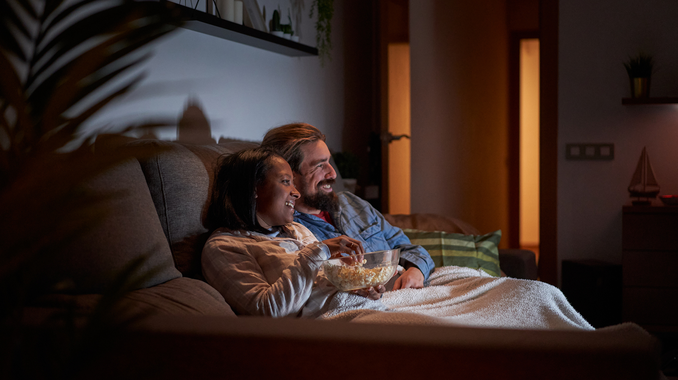Season two of Showtime’s “The Chi” left viewers to mull over the tale of the scorpion and the frog: The scorpion asks the frog for a lift across the river. The frog is immediately faced with a dilemma because he is afraid of being stung, but the scorpion says that if he did so, they would both drown, dooming them both. Halfway across, the scorpion stings the frog. The frog manages to utter his last words “Why?” The scorpion’s answer is it is simply in his nature to sting.
This fable is a recurring theme throughout The Chi referenced at different points by Brandon Johnson (Jason Mitchell), the chef, and Stanley “Papa” Jackson (Shamon Brown Jr.), a portly eighth-grader who is wise beyond his years. The characters try to parse out who might be the scorpion: Is it Reg Taylor (Barton Fitzpatrick), a leader in the 63rd Street Mob? Is it Otis “Douda” Perry (Curtiss Cook), Reg’s boss?
The characters of “The Chi” might be fictional, but the storyline is steeped in a reality where systemic racism is the actual scorpion. The character’s lives are indicative of what many African American families in Chicago navigate in real life: incarceration, gang violence, trauma, family strife, and gentrification.
Incarceration
Season two opens with Ronnie Davis (Ntare Guma Mbaho Mwine) being incarcerated after admitting to the murder of Coogie Johnson (Jahking Guillory), Brandon’s younger brother. The 63rd St. Mob is the enforcer of street code, and the threat of prison always looms close. Brandon worked hard his entire life to avoid any trouble with the law, but because of his affiliation with Douda, who is using Brandon’s business to wash money, he has a record.
According to the Washington Post, there are neighborhoods in Chicago where 70% of men between 18 and 54 are likely to come into contact with the criminal justice system. To address the issue of mass incarceration, the Cook county’s state attorney recently instituted some reforms that resulted in the number of people sentenced to prison or jail falling by as much as 20%.
Gang Violence
Douda has many seemingly legit businesses to disguise his criminal activity: an Italian restaurant, a real-estate development company, and even Brandon’s food truck. However, in order to keep his subordinates in line Douda resorts to manipulation, which ultimately leads to violence: He directed a series of violent home invasions, and instead of calling the police on a track coach who has a penchant for high school girls, the 63rd Street Mob is called in to settle the score.
After George Floyd was killed by a police officer, while the protestors rallied, violence and riots ensued over looting throughout the city. The Folk Nation and the People Nation are two notorious rival gang alliances in Chicago. In June 2020, more than a hundred people were shot in Chicago, including seventeen murders in a single day.
Trauma
Living in an environment characterized by gang violence results in trauma. Early in season two, we watch a scene with Kevin Williams (Alex Hibbert) in therapy. After all that he experienced in season one: witnessing the murder of his friend Coogie; being so terrified that he felt like he needed to carry a gun for protection; shooting Coogie’s murderer, he’s left to process a string of seriously traumatic events.
Kevin’s therapist asks him what he wants to be when he grows up, and he responds, “If I grow up…” His response is nuanced, but it is a thought that many young men in the South Side share. A study conducted by New York University showed that the life difference in life expectancy between one predominantly Black and poor Chicago neighborhood is thirty years less than another that is predominantly white and middle class.
Family Strife
Living in poverty not only includes financial stressors, but also impacts a family’s structure. There are several complex family dynamics represented in season two, but one that was particularly pointed was Maisha’s (Genesis Denise Hale). Maisha is a classmate of Kevin’s who, despite being fourteen years old, already has her sights set on college. However, because her mom is a single parent who works multiple jobs to support her family, Maisha is required to miss several days of school to babysit her siblings.
This is an all too common dynamic in households in communities like the South Side. The oldest child’s education tends to be sacrificed for the safety of their younger siblings. Fortunately, Maisha returns to school, and she nor her mother are charged with truancy, which disproportionally affects families of color. African American children have some of the highest truancy rates according to a 2011 analysis, and about a quarter of American students miss school chronically because their families can’t afford transportation or, like Maisha, students are expected to babysit younger siblings.
Gentrification
Last season, gentrification was an issue that involved many characters, but real estate agent Jerrika Little (Tiffany Boone) was, at one point, part of the problem. In season 2, Jerrika landed a new client who bought an apartment building that initially housed low-income families, but after renovations, the client told Jerrika that she did not want to reserve any units for low-income tenants.
Chicago, on the whole, is a city that has been recognized as an international city. It has attracted new corporations, and in 2016, nearly 25% of households in Chicago earned more than $100,000 a year. But after watching “The Chi”, these figures would be hard to believe. In fact, the economic growth in Chicago has not trickled down to the South Side.
Some reports show that because of the deep-rooted segregation in the city, gentrification is not happening. However, gentrification has shown to be more insidious: Under-performing public schools have closed. In Bronzeville, a black neighborhood on Chicago’s South Side, parents believed that their neighborhood was slated for gentrification. Because of the closures, families who couldn’t afford to send their kids to private school were forced to relocate, further destabilizing the Black community.
By all accounts, the scorpion in “The Chi” is the system itself. Each character is simply trying to survive in a city short of resources that is designed to keep the characters of “The Chi” in their place—on the South Side.
![]()
The content is featured on https://www.directv.com/insider/ is editorial content brought to you by DIRECTV. While some of the programming discussed may now or in the future be available affiliates distribution services, the companies and persons discussed and depicted, and the authors and publishers of licensed content, are not necessarily associated with and do not necessarily endorse DIRECTV. When you click on ads on this site you may be taken to DIRECTV marketing pages that display advertising content. Content sponsored or co-created by programmers is identified as "Sponsored Content" or "Promoted Content."





